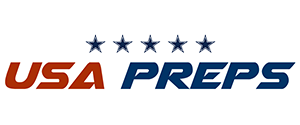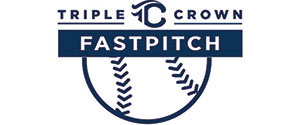From http://www.ncaa.org/about/resources/media-center/autonomy-schools-adopt-cost-attendance-scholarships...
College athletes’ viewpoints dominate business session discussions
Division I college athletes will have new levels of support when the new school year begins in the fall.
Schools will be able to give their athletes the full cost of attendance as part of a full athletics scholarship beginning Aug. 1, and those scholarships cannot be revoked for athletics reasons. The autonomy schools also voted to adhere to more stringent concussion management requirements and will submit their concussion protocols to a new Concussion Safety Protocol Committee for approval.
Decisions in the autonomy group – comprised of five participating conferences, the Atlantic Coast, Big Ten, Big 12, Pac-12 and Southeastern – are made by voting representatives from each of the 65 schools plus three student-athletes from each conference. The group adopted the rules during the first-ever autonomy business session under the new Division I governance structure. Those schools now have the flexibility to propose and adopt rules within a set of specific categories as part of the new Division I governance structure.
Schools in the other Division I conferences are able to apply the same rules if they choose, and several of the representatives cautioned the assembly to remember the impact on the rest of the division when casting votes.
Scholarships to cover cost of attendance
In the autonomy conferences, a full scholarship will now include expenses that meet the federal definition of “cost of attendance.” Now, in addition to tuition, fees, books and room and board, the scholarship will also include expenses such as academic-related supplies, transportation and other similar items. The value of those benefits can differ from campus to campus.
“I wholeheartedly support this proposal,” said University of Oklahoma football player Ty Darlington. “On behalf of every athlete in this room, I want to thank you guys for making a real effort to enhance the student-athlete. I feel like the NCAA as a whole gets a bad rap like you’re trying to exploit student-athletes. … Now I’ve seen that there really is a meaningful movement to help student-athletes.”
Darlington, who is one of seven children in his family, said the proposal would have a meaningful impact not just on the athletes but on families who struggle to put their children through school.
The SEC sponsored two amendments to the scholarship proposal: a measure that would establish a national reporting system for annual variances in cost-of-attendance figures at each school, which failed; and an amendment the conference withdrew, which would have maintained a form of the current rule for determining team scholarship limits. An ACC amendment that proposed a change to the way books are accounted for in the calculation of equivalency scholarships also failed.
Another ACC amendment permitting schools to use the Student Assistance Fund to pay for expenses included in the cost of attendance calculation was adopted.
Guaranteed scholarship discussion generates discussion
Prohibiting schools from cutting a student’s scholarship for athletics reasons generated the most conversation, particularly from the athletes. They fell on both sides of the issue.
Madison Stein, a softball player from the University of Kansas, argued against the measure.
“I can personally say the success of my team heavily relies on scholarships to reward the girls that are doing well. The girls that have to be let go, it’s for the betterment of the program,” she said. “This proposal binds a coach’s hands.”
Nandi Mehta, a women’s soccer player at Northwestern University, took the opposite position.
“If you decide to take away a scholarship based on athletics performance, you are punishing a student-athlete based on athletics performance. How is a scholarship any different than a salary, and how is a student-athlete any different from a professional athlete?” she asked. “I don’t think this is a road we want to go down.”
The measure was successful, and the policy will take effect for aid agreements that begin in the 2015-16 academic year.
...
future vision discussed
...
The schools also outlined their vision for the future of college sports, and used them to set their priorities through a resolution. On the horizon for consideration include concepts such as opportunities for former student-athletes who left school without a degree to return on scholarship and comprehensive medical and academic support for college athletes.
College Softball
Autonomy schools adopt cost of attendance scholarships
3 posts
• Page 1 of 1
-

PDad - Premium Member

- Posts: 3439
- Joined: Sun Mar 29, 2009 4:52 pm
Do you know if there was any talk regarding "verbals" It certainly add a new dynamic if the Autonomy schools banned them?
-

jonriv - Posts: 4875
- Joined: Fri Feb 20, 2009 6:01 am
- Location: Connecticut
It's impossible to ban verbals because it's a necessary step in entering a formal agreement. 
I haven't heard of any recent proposals to limit or regulate verbals. It's a pipe dream to think the power 5 would do anything unilaterally that limited their ability to recruit.
I haven't heard of any recent proposals to limit or regulate verbals. It's a pipe dream to think the power 5 would do anything unilaterally that limited their ability to recruit.
-

PDad - Premium Member

- Posts: 3439
- Joined: Sun Mar 29, 2009 4:52 pm
3 posts
• Page 1 of 1




























